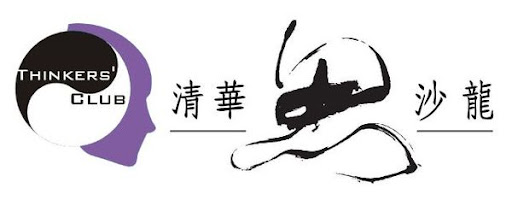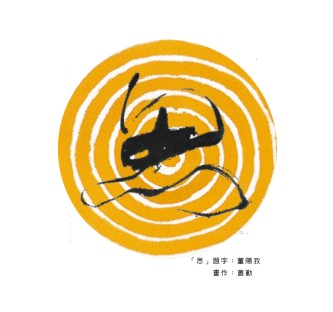【以下引用至龍應台文化基金會「你所不知道的全球化幕後推手」活動手冊】
Stephanie Black first went to Jamaica while making her award-winning documentary H-2 Worker. Life and Debt continues her tradition of polemical filmmaking.
史提芬妮.布萊克拍攝她得獎紀錄片【超時工作】期間首次踏上牙買加,而【債與命】這部描述全球化對牙買加(Jamaica)第三世界國家影響的紀錄片也延續了她一貫的手法。
BBC Four: There's been growing interest in globalisation recently with books like No Logo and media coverage of various demonstrations. Did that influence your decision to make your film now?
近期隨著像No Logo這類書籍及媒體多方面的實證報導帶起了全球化風潮。請問您決定拍攝【債與命】是否受到這股風潮的影響?
Stephanie Black: Absolutely not - it's just coincidence. I started working on this film in 1992. When I was in Jamaica [making H-2 Worker] I kept asking myself how a country this rich could be this poor. I kept reading about the IMF and the World Bank and never understood at that time that the IMF had such a far-reaching arm on everyday policies of the country. I thought the IMF was like the Red Cross!
當然不,這只是巧合罷了。我從1992年就已經開始著手策劃這部片子。當我在拍攝【超時工作】期間,便不斷的自問為何一個資源豐富的國家卻如此貧窮?我不斷的閱讀有關IMF和世界銀行的資料,但在當時卻沒有理解到IMF會伸手干涉一個國家的政策,而誤將其視為是與紅十字會一樣的組織。
In the United States of course we don't borrow money from the IMF so there's no way to get that same kind of understanding, particularly as our media didn't cover that at all at that time. So the lack of transparency of the institutions and also my interest in understanding this issue that has somehow been left out of my education was what motivated me to make the film.
當然,在美國我們不會向IMF貸款,因而無從理解這樣的情況,特別是在當時我們的媒體也沒有這類的報導。所以,由於這些國際組織的不透明性以及我個人這類議題的興趣,而成為我著手拍攝本片的動機。
BBC Four: The film also touches on tourism in Jamaica. Why did you decide to frame the film around that ?
【債與命】觸及到牙買加當地的觀光業,妳為什麼選用這個產業切入電影的主題?
SB: There's a certain lack of information inherent in American society in the same way that tourists might visit a country and not know what's beyond the boundaries of their hotel. That was a metaphor for me for the situation here where we often don't think about the impact of US policies. It was a way to ask the viewer, "What is my culpability in all of this?"
美國社會天生認為欠缺與美國無關的資訊是理所當然的,就像觀光客到一個國家觀光卻從不去了解旅館的後面發生什麼事情一樣,這充分暗示了我們太少去思考美國政策的衝擊。這部影片恰巧可以讓觀眾思考「我們做錯了什麼?」
What was very striking while making the film was how everyone in Jamaica can explain what these policies are and their impact but you can take a college-educated student here and they would be very hard pressed to explain the same information. Yet we hold the strongest voting power in the IMF and nothing can actually be changed in Third World countries unless it has the full backing of the G8. So the use of the tourists was not in any way addressing tourism. It was a really a metaphor that was reinforced by the use of the Jamaica Kincaid text.
製片期間,感受到最大的震撼是,你隨便問一個牙買加人,他都可以侃侃而談這些政策和衝擊。但如果你去問美國的大學生,卻無法對同樣的問題清楚的表達。
此刻,美國雖然在IMF握有堅強的投票權,但除非有八大工業國的全力支持,否則沒有任何事能真的改變第三世界國家。所以,觀光在這部片子中其實只是個引子。
BBC Four: Finally, this year marks the 40th anniversary of Jamaican independence. What's your sense from working and living there about whether it's been a good thing or a bad thing?
今年是慶祝牙買加獨立的40週年紀念日。從你工作與生活在牙買加的經驗來說,你認為IMF對牙買加來說是有利?還是有害?
SB: The broad majority of people feel exceptionally that it's a good thing. Of course, there is a small minority of people who disagree. What's unfortunate is the IMF and the World Bank end up being a really important presence in countries with a colonial history. So just at the moment when some of the vestiges of colonialism are disappearing, the IMF come in and almost prey on those vestiges that are set up from another agenda. In Jamaica's case and in many countries around the world there is a need for capital after colonialism and the only way countries can get that it is by borrowing from the IMF.
對多數人來說,仍認為IMF的介入是有利的。當然,也有一小部分並不同意。不幸的是,IMF和世界銀行仍在曾被殖民的國家中,扮演相當吃重的角色。所以,當殖民主義即將消失的同時,IMF適時介入並以另一種形式進行剝削、掠奪。牙買加這個案例與世界上很多國家一樣,在殖民主義結束後,需要大筆資本進行重建時,跟IMF借貸成為他們唯一的途徑。
I think this is an unfortunate truth and a lot of people who fought against going to the IMF in the 1970s and had such vision for their country post-independence have had all their worst fears confirmed. It would be very difficult to turn back the tide at this particular moment. So while it's important that Jamaica was granted its independence it was never allowed to develop itself in a way that its people envisioned. (abridged)
不幸的是,許多曾在 70年代抵制加入IMF的人,早已洞悉後獨立時期將面臨的危機,而今,這些埋藏在心底的恐懼,也已得到印證。在這個特殊的時刻卻也無法扭轉這個趨勢。所以,雖然牙買加終於能夠獨立,但是卻也注定他們永遠無法依照自己的想法自主發展的命運。
From:http://www.bbc.co.uk/bbcfour/documentaries/storyville/stephanie-black-interview.shtml
本文節錄至BBC Four 對導演的專訪/譯文由龍應台文化基金會義工熱心翻譯
2007年10月10日 星期三
《債與命》導演 史提芬妮.布萊克(Stephanie Black)專訪
訂閱:
張貼留言 (Atom)


 思想夥伴們:
思想夥伴們:
0 意見:
張貼留言